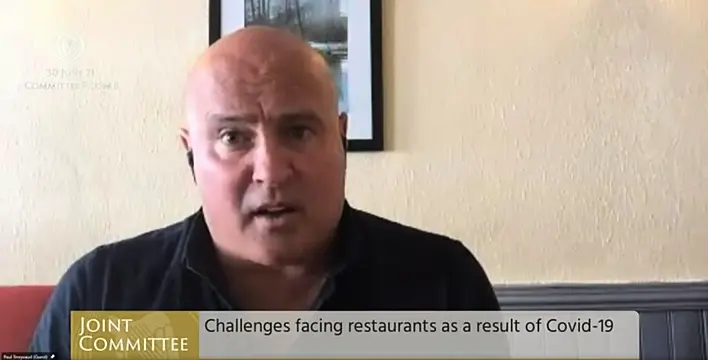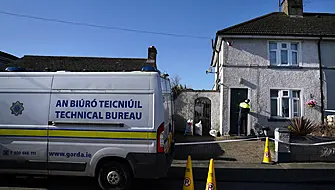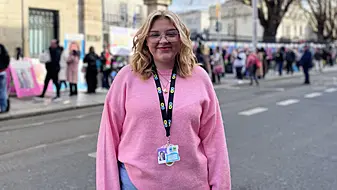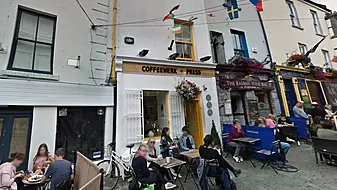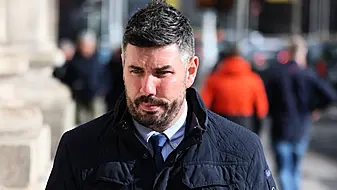A restaurateur has revealed how he received 500 cancelled bookings throughout the summer after the Government delayed the reopening of indoor dining.
Paul Treyvaud, owner of Treyvaud’s restaurant in Killarney, Co Kerry, told an Oireachtas committee on Wednesday that he has already lost half of his summer business.
He told the Tourism, Culture, Arts, Sport and Media Committee that hotels and guesthouses will also feel the effect of shuttered restaurants and bars.
“Yesterday, I took 500 cancellations throughout the month of July and the first two weeks of August,” he said.
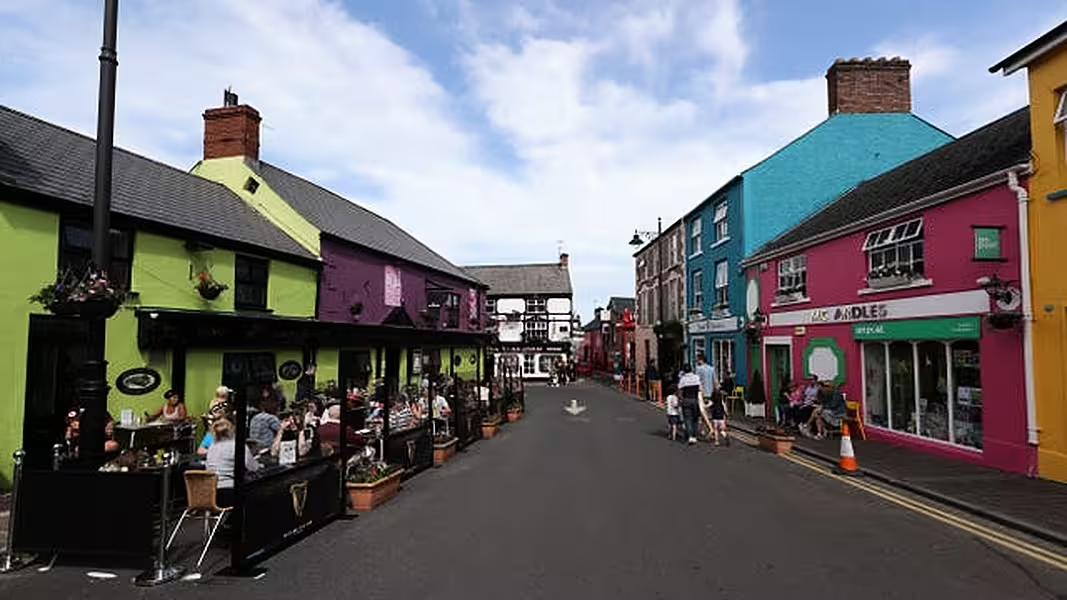
“That’s just one place. Anyone else I have spoken to said the exact same.
“At this stage I don’t know how far beyond trouble we are in, it’s an absolute disaster.
He added: “The four months of summer, we would take probably 75 to 80 per cent of our revenue and that gets us through from October to April.
“So we are not going to get 50 per cent of that. It’s going to get worse because people have cancelled bookings in hotels and guests houses.”
Fully vaccinated diners
The Government has said it will adopt a system where only fully vaccinated people can dine indoors, a scheme that has been widely rejected by the hospitality sector.
The reopening of indoor eating and drinking has been delayed, with the Government saying it will devise an implementation plan for the domestic Covid certificate by July 19th.
Sinn Féin TD Johnny Mythen said what is happening to the industry was “heart-rending”.
“Everyone was looking forward, not just yourselves, but customers too, to restaurants and pubs opening. It’s devastating to everyone.”
Mr Treyvaud said that many restaurants have “fallen off the cliff” but have not realised it yet.
“The biggest issue yet to arise will be the absolute carnage that will follow this winter when so many restaurants will simply go bust as soon as the subsidies stop,” Mr Treyvaud added.
“They will fall off the cliff and, unfortunately, a lot have and already closed their doors. Some have fallen but just haven’t realised it yet.
“They will only see it once we reopen. Once we reopen and the subsidies come to a halt, all of sudden we have no cash flow.”

Mr Treyvaud was also critical of the proposed domestic Covid passport, saying it will be “impossible” to implement.
“Who am I to ask someone at my front door of my restaurant if they are vaccinated? I may as well ask them what colour of underpants they have on,” he added.
“It’s none of my business.
“Is there discrimination there? Absolutely. All my colleagues and peers I have spoken to in the industry, they have all said the exact same thing.
“I don’t know how we will have it implemented or policed.”
Incomes slashed
Meanwhile, new research from the Arts Council has found that four out of every 10 artists saw their income slashed by 50 per cent or more in the last year.
An Oireachtas committee heard that the situation will “remain in crisis into 2022”.
Chair of the Arts Council, Professor Kevin Rafter, said the is relying on increased Government funding, promised prior to the pandemic, to protect jobs and livelihoods.
He said: “The arts sector was one of the first to be hit and is going to be one of the last to recover from the Covid-19 crisis.
“There was a 54 per cent reduction in GDP in the art sector in Ireland last year.
“New Arts Council research, which will be published shortly, shows that four in 10 artists, saw their income decline by over 50 per cent last year, with the vast majority seeing no improvement in 2021.
“This is a sector where job security was already precarious and pay low, so the huge negative impact which first hit in March of last year is continuing.
“We now know the situation will remain in crisis into 2022 for artists and arts organisations.”
Prof Rafter said the Art Council’s annual budget has increased from €75 million two years ago to a “historic high” of €130 million today.
“A political commitment to increase arts funding was made prior to the pandemic, and the impact of this funding will be truly felt when the crisis has passed” he added.

“But for now, this money is the means by which the Arts Council is working to protect jobs and livelihoods of artists and to assist arts organisations experiencing financial difficulties.
“The Arts Council used increased public funding to help the sector survive and adapt in 2020 and again in 2021, and will continue to do so in the months to come.”
The Art Council has provided emergency funding to 190 arts organisations, “many of them facing imminent closure in May 2020”, the committee heard.
Prof Rafter added: “2022 will hopefully be a year of recovery but, in the meantime, funding will continue to be targeted at jobs and livelihoods, as well as assisting arts organisations in trouble.”
